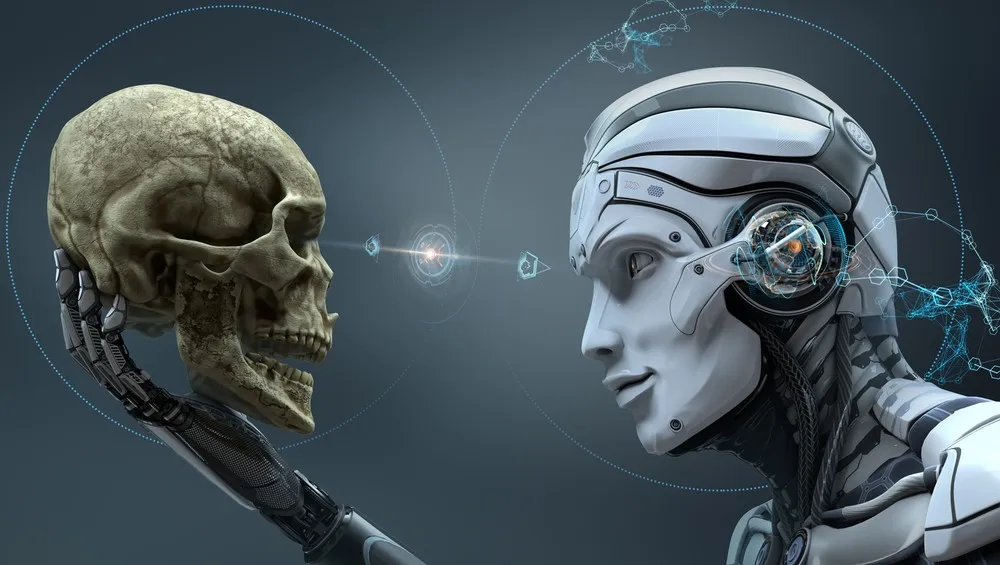By Simran Saraon, Year 12
In the rapidly changing landscape of technology, Artificial Intelligence (AI) contends as a powerful force, transforming industries and reshaping the way we live. Though the capabilities of AI are awe-inspiring, it is important to acknowledge the potential dangers that accompany this revolutionary technology. As we plunge into a future where machines can adapt, learn, and make decisions on their own, we must also consider the more worrying side of AI.
One of the primary concerns surrounding AI is its potential for job displacement. As machines become increasingly proficient at performing routine or complex tasks, there is a growing fear that automation will replace human workers across various industries. Jobs that involve repetitive tasks or predictable patterns are particularly vulnerable, leading to unemployment and economic instability. While AI brings efficiency and innovation, its unchecked growth may exacerbate societal inequalities and contribute to a widening gap between skilled and unskilled workers.
One could argue that job displacement is an inevitable consequence of evolution. For example, when the first wheel was invented in Lower Mesopotamia, there would have been a huge outsourcing of jobs to the wheel, given its efficiency in transportation. The people who used to be in charge of the tasks that the wheel took over would also have been displaced, even if the displaced workers could more easily find jobs. This is only one example of technology replacing human workers in a long line of history, but it can soften the panic of AI replacing jobs, though the scale on which it may do so is unpredictable and unprecedented.
Despite this, another perilous aspect of AI is its susceptibility to bias. AI systems often use machine learning algorithms, which learn from large datasets. These datasets might contain biases found in human society.These biases can increase existing inequalities, particularly in areas such as hiring, lending, and law enforcement. If left unaddressed, biased AI systems can lead to unfair or even discriminatory results, a threat to social justice and equal opportunities.
Ethical considerations extend to the possible misuse of AI in autonomous weapons. Autonomous weaponry raises the possibility of uncontrolled and indiscriminate violence as AI systems become more capable of making snap decisions based on intricate algorithms. The absence of human supervision in crucial decision-making procedures presents a serious risk to international security, as it may lead to unforeseen outcomes and intensification of disputes.
Furthermore, the vulnerability of AI systems to hacking and malicious manipulation is a significant danger (this danger is even portrayed in the latest Mission Impossible movie!). As AI becomes increasingly integrated into critical infrastructure, healthcare, and financial systems, the potential for cyberattacks aimed at exploiting vulnerabilities in AI algorithms grows. A compromised AI system could lead to catastrophic consequences, ranging from widespread data breaches to the manipulation of decision-making processes in sensitive areas such as finance or healthcare.
In conclusion, while the potential benefits of AI are vast and transformative, it is essential to acknowledge and address the associated dangers. From job displacement and biased algorithms to privacy infringement and the potential for autonomous weaponry, the risks posed by AI demand careful consideration and proactive measures. We must educate ourselves and be aware of the potential risks, as well as exercising caution, to properly propel us into a safe future where we may live with the full potential of AI without succumbing to its perils.



